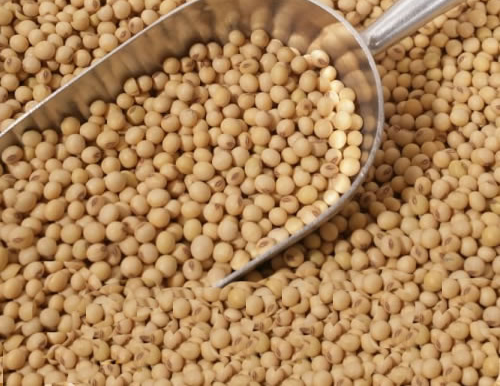Stakeholders in the agricultural sector are foreseeing good days for soybean farmers across the country as the federal government moves to start soy sauce production locally.
Soy sauce is a liquid seasoning agent currently used in cooking worldwide. It contains bioactive components, in addition to taste and aromatic compounds.
- Oshiomhole: I’m no longer interested in chairing APC
- Development interventions suffer setback as UK reduces aid budget
Our Agric Editor reports that soybean is the major raw material for soy sauce production. The crop is one of the most valuable, versatile and nutritionally important legumes globally, and it can be cultivated in nearly all parts of Nigeria.
With a deep reddish-brown and liquid-like appearance, soy sauce is used for enhancing the taste and colour of cuisines from various cultures.
According to a document from the Raw Materials Research Development Council (RMRDC), the global soy sauce market size was $40.63bn in 2019, and is projected to reach $56.67bn by 2027.
The document further indicates that the global trade of soy sauce is dominated by countries in the Asia-Pacific region, with China, Japan, Singapore and Hong Kong among the major exporters. The largest manufacturers and retailers of soy sauce are based in the United States of America (USA) and the Netherlands; both of which have become major exporter nations.
Why FG wants local soy sauce production
According to the Director General of RMRDC, Prof. Hussaini D. Ibrahim, despite the high level of soybean production in Nigeria, the production of soy sauce locally has not been encouraging.
In 2017, he said a total of 22,000 tonnes of soy sauce was consumed locally while local production was about 11,000 tonnes, culminating in expenditure of about $35m for soy sauce importation.
In 2018 and 2019, he said consumption values increased to 28,000 and 30,000 tonnes, while local production increased to 13,000 and 16,000 tonnes, culminating in the expenditure of $58m and $62m respectively in foreign exchange equivalent.
The major country where soy sauce was imported from during these periods was India and the major imported soy sauce products were dark soy sauce with HS code 21031000 and TEMPTIN soy sauce with HS code 21039020.
Prof. Hussaini explained that in view of the increasing scarcity of foreign exchange in the country, coupled with the prohibitive cost of wheat flour, it was imperative to promote the production of soy sauce from locally available commodities.
How will local farmers benefit?
Mr Emmanuel Ayobami, an agricultural economist, is of the opinion that producing soy sauce locally will expand market for soybean which will mean more money for the local farmers.
Mr Ayobami said, “As farmers expand farming capacity, there will be more job opportunities for youths and improved living standard for the farmers.”
In a telephone interview with Daily Trust, Mr Ayobami said such step would also save forex for the country, adding that it would also make farming more inviting for the people because of the ready market for the produce.
He said, “But you know this is Nigeria, it is a different thing for the government to make a policy, the implementation is another thing.”
However, according to RMRDC, there are several efforts in place to ensure the beginning of local production of soy sauce soon.
The council said, in collaboration with a research team from the Lagos State University (LASU), it has designed and fabricated a small-scale soy sauce production plant to produce soy sauce from 100 per cent locally sourced raw materials.
This, it further said, resulted in the production of 100 per cent locally sourced flavour to meet the needs of the food industry.
The design and fabrication of the plant have been completed and soy sauce samples produced have been analysed by independent analysts. The samples have properties reminiscent of soy sauce imported into the country.
According to the council, “Sensory evaluation shows it is widely accepted. However, the work is continuing to ensure and sustain the high level of acceptance of the product. In this regard, the council is already promoting investment in the commercial production of soy sauce in Nigeria using a combination of the raw materials identified, the process and the production equipment developed.”
According to the Prof. Hussain, RMRDC presently has five investors that have indicated interest in the project and that within the next few years many plants producing soy sauce for local utilisation and export will be established in Nigeria.

 Join Daily Trust WhatsApp Community For Quick Access To News and Happenings Around You.
Join Daily Trust WhatsApp Community For Quick Access To News and Happenings Around You.


